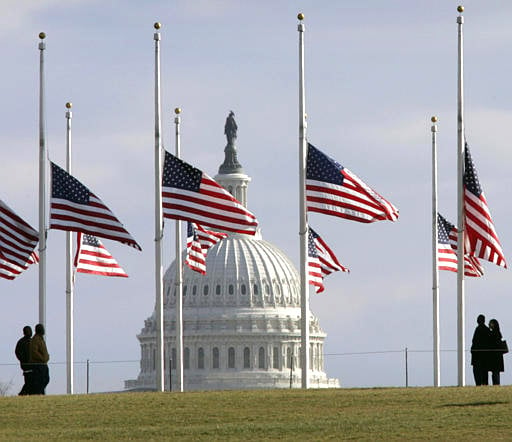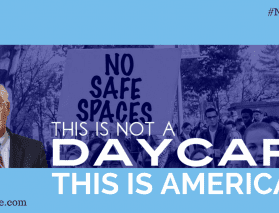Evil exists. It reappeared in a violent and horrific way last week in a Colorado movie theater. I’ve tried to stay out of the ensuing debate placing blame in all directions. As the father of six, including one son on the verge of his sixth birthday, the tragedy just hit too close to home. It’s a horrible thing that’s been done, rightly prompting much prayer and sympathy in our own household and, I hope, in yours. Be sure to read this post by a woman of faith who survived in the theater that night.
But the endless cries to use this tragedy to promote more restrictive gun control laws have stirred me to push back with as much love as I can muster.
Gun control laws aren’t the answer.
On a personal note, I’ve had a little experience encountering such evil. I live not far from Chardon High School, site of the February shooting that left three of our neighbors dead and two others injured. I know many of the families involved. As a local school administrator, I’ve had to deal with the fallout of emotions and the ministry impact of such an event. I posted about my reactions to that tragic shooting here and here.
I managed to stay silent until one post here at Patheos provoked a reaction, although there are others making similar calls for gun control laws. Ben Witherington titles his post “The Aurora Debacle and Responsible Gun Use.” He then proceeds to set up straw men, simplistic arguments against gun control, and knock them down, not surprisingly, with apparent ease. Others here at Patheos have joined the cause.
There’s a lot that could be said as I ponder my response as a Christian father who has dealt with such tragedy at the local level. I’ll stick to three things, on one of which I actually, sort of, agree with Witherington.
Why?
Witherington’s central claim seems to be: “In the wake of the disaster at the Cineplex in Aurora, Colorado, it really is time for us to rethink entirely our gun (and ammo) control laws.”
I ask. Why?
Why does this event now “really” require us to entirely rethink gun control laws? Are gross violations of other laws grounds for entirely rethinking them also? When I encountered a 40-car pile-up some months ago while driving through the Kentucky mountains, was that sufficient cause to entirely rethink traffic laws that were no doubt broken to cause such a debacle? What about those who commit unspeakable horrors while under the influence of alcohol? Is it time to break out Prohibition again or raise the drinking age to 72? Are the horrific headlines of parents who — God have mercy — drive their children into a lake grounds for rethinking driver’s license laws?
No, I don’t understand how the gross violation of laws already existing is grounds for yet more laws to restrict the same thing.
Where we agree
I can hear the response already (because Witherington raises it next in his post):
The issue is the mayhem that guns can do in the hands of even those who may be perfectly normal and alright most of the time, but simply have a really bad day and get angry.
The same logic would apply to access to anything that might be used to create widespread carnage, but I actually agree with him on the first part. The issue is that guns make it possible to do a lot of damage quickly. On that point, I think he has a valid claim because it is true. Can’t deny it.
But everyone of us is capable at our sinful core of unthinkable evil — with or without access to guns. The threat of consequences to breaking the law deters evil. However, if someone is committed to doing evil — consequences be damned — no laws will deter them. God created us in His image as imaginative and highly creative beings. When, in our corrupted state, we train our creative powers to perform evil through the use of force, very little can stop us.
Except opposing force. Sometimes the only language evil understands is force.
I know that thinking doesn’t fit into the progressive, humanistic thinking ingrained into a generation by our eduction system. And by our churches. But there it is. And let’s not confuse Christ’s call to turn the other cheek when reviled for His name as grounds to disobey the commands of Proverbs to defend the rights of the poor and needy (Prov. 31:9) and rescue those who are being taken away to death. (Prov. 24:11)
Acknowledging our evil state, I come to a different conclusion than Witherington and others. Gun control won’t stop anyone from inflicting unspeakable pain on others.
Maybe you could make the case that by making it difficult to get certain guns, we could minimize the scope of such tragedies. Maybe. Lawn fertilizer mixed with the right chemicals in the wrong way could do more damage though. As would a car with a flaming rag stuffed in the gas tank driven into a crowded lobby. Remember, no one thought airplanes were weapons of mass destruction until 9/11.
The elephant in the room
The greatest issue I take with these arguments for greater gun control is that they ignore the ideological elephant in the room. The fact is that the overwhelming number of massacres and murderous evils in the history of the world were done not by individuals who got their hands on guns from shady sources, but by governments themselves. You know, the ones Witherington says should have guns. A quick tour of the last century alone reminds us that countless governments committed widespread atrocities through the barrels of guns of various sizes against people who were not allowed to point back with gun barrels of their own.
Why then would anyone argue that we would all be safer if government — any government — had exclusive access to guns. The trend of governments in history has always been toward evil. There’s no reason to think the US would be any different. Indeed, we can be pretty certain of the outcome given the recent gun-running by our government through the “debacle” of Operation Fast and Furious that has left hundreds dead. So far.
The more restrictions any government makes on the means to resist an abuse by that government, the fewer freedoms those people are likely to keep at the end of the day. A trade-off must always be made between security and freedom, between the perception of risk and the perception of safety.
I know. I know. To even warn of such abuses by governments immediately earns people labels of being extreme, right-wing, crazy people. Until it happens. Then they’re called prophets. Dead prophets. But prophets nonetheless.
I’m claiming none of the above titles. I’m just a father and student of history pointing out what would seem to be pretty obvious.
Evil comes in many forms. It can come in vivid horror like it did it that night in Colorado. Or it can take subtler forms. Often evil claims its greater victories not in the frontal attack everyone sees but in the tragic consequences of sincere but misguided efforts to keep it from returning.
Maybe I’m missing something. I welcome all comments provided they’re focused on civil discourse and growth. If you share that aim, by all means, leave a comment here to help us all grow.
















